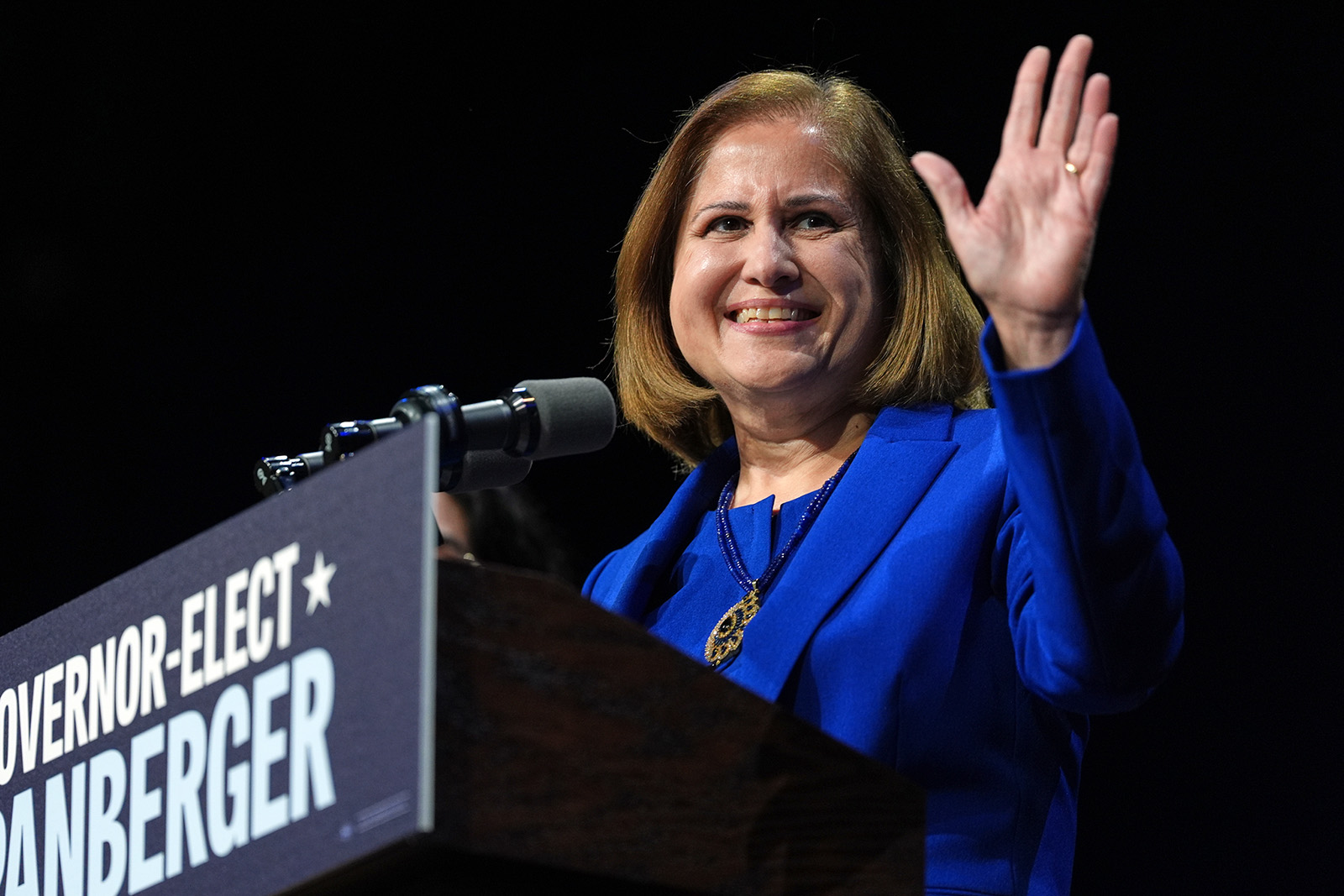
(RNS) — While Zohran Mamdani’s ascent to New York City’s mayoral seat marked a historic turning point for the city and its more than a million Muslims, in Virginia, Ghazala Hashmi, a Democrat who was elected as lieutenant governor, made her own history as the first Muslim woman ever elected to statewide office in the United States.
“This was possible,” she said in her victory speech Tuesday night (Nov. 4), “because of the depth and breadth of the opportunities made available in this country and in the commonwealth.”
Hashmi secured 55.1% of the vote in a competitive race against Republican John Reid, a conservative former talk show host.
Born in Hyderabad, India, and raised in Georgia, Hashmi, 61, had already made history as the first Muslim and first South Asian woman elected to Virginia’s Senate, representing Richmond, in 2019. As in that race, she campaigned for lieutenant governor with an agenda that was more progressive than her competitors in June’s Democratic primary, then took 55% of the vote on Election Day after promising to boost funding for public education and to stand up to President Donald Trump.
“The devastation that we’ve seen from the second Trump administration has far exceeded anyone’s expectations,” she told Religion News Service in late October. “We need to have strong, competent, as well as seasoned, individuals in place guiding states at this moment in history.”
Hashmi said her Senate run, too, was motivated by resistance to Trump, particularly his first administration’s attempt to ban Muslims from immigrating to the U.S. and its anti-immigrant policies in general. “It wasn’t so much in my thought to be the first,” she said, “but it was important that somebody be there in our state Assembly representing, advocating and speaking on behalf of all communities that were being disenfranchised and targeted.”
During this year’s lieutenant gubernatorial campaign, Hashmi faced attacks targeting her Muslim faith, including from her opponent. The senator said the bigoted tropes fortified her resolve to “shatter stereotypes” and “demonstrate the connections that Islam has long had with this country, how foundational and essential the traditions of the faith are to the same values of American democracy.”
Her Muslim faith guides her policies, she said. “In Islam, we’re commanded to take care of those who are sick among us, to feed the hungry, to provide shelter to those who have no housing, to take care of the orphan and provide education to the young, to care for our elders. I take those basic guidelines and translate them into the policy choices,” she said, adding that her faith is part of her “approach in terms of the responsibility to move the needle on social justice.”
For nearly three decades, Hashmi worked as a professor and administrator in Virginia after earning a doctorate in literature at Emory University. She built a diverse, grassroots support base, earning endorsements from abortion rights groups, union leaders and multiple state and federal officials.
“Whether we’re talking about veterans or working parents, first generation students or immigrant communities, I literally had everybody sitting in my classroom, so it was easy for me to build that coalition,” Hashmi said.
Hashmi was also supported by Defend and Advance, a Muslim super PAC, and by the Council on American-Islamic Relations Action.
“We hope this historic moment will inspire American Muslims to continue pursuing public service in Virginia and across the country,” CAIR wrote in a statement congratulating Hashmi.
Several other Muslims won seats in Tuesday’s elections, including Dearborn, Michigan, Mayor Abdullah Hammoud; Dearborn Heights Mayor Mo Baydoun; and Virginia House Delegate Sam Rasoul.
In Minneapolis, two progressive Muslim women, Aisha Chugtai and Aurin Chowdhury, were elected to the City Council, but in the city’s closely watched mayoral race, progressive challenger Omar Fateh lost to incumbent Jacob Frey. Fateh, the 35-year-old son of Somali immigrants, pitched voters on a far left vision for Minneapolis, hoping to become the first Muslim and first Somali American mayor of the city, which has the largest Somali population in the U.S.
In New Jersey, Mussab Ali, who ran on progressive ideas and was often compared to his counterpart across the Hudson River, lost his bid for Jersey City mayor.
